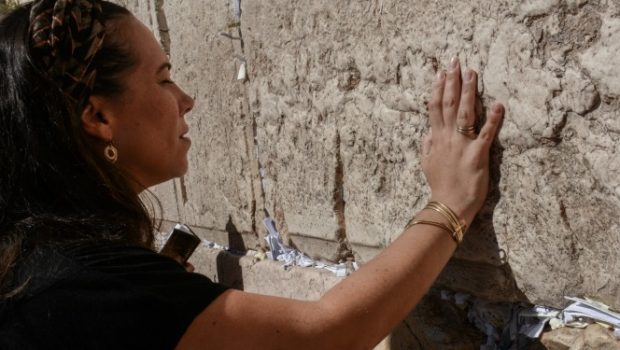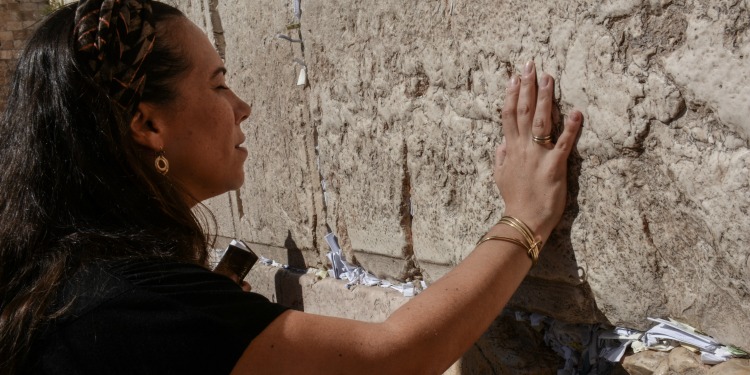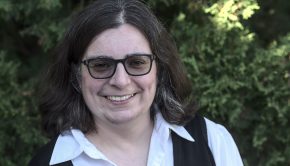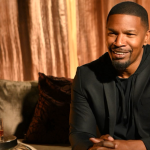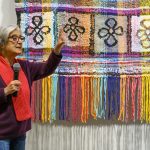Yael Eckstein, IFCJ President Discusses the Power of Saying ‘I’m Sorry’
Yael Eckstein, IFCJ President and CEO, oversees all ministry programs and serves as the international spokesperson for the International Fellowship of Christians and Jews (The Fellowship).
Prior to her present duties, Yael served as Global Executive Vice President, Senior Vice President, and Director of Program Development and Ministry Outreach. Based in Israel with her husband and their four children, Yael is a published writer and a respected social services professional.
Yael Eckstein has contributed to The Jerusalem Post, The Times of Israel, and other publications, and is the author of three books: Generation to Generation: Passing on a Legacy of Faith to Our Children, Holy Land Reflections: A Collection of Inspirational Insights from Israel, and Spiritual Cooking with Yael. In addition, her insights into life in Israel, the Jewish faith, and Jewish-Christian relations can be heard on The Fellowship’s radio program, Holy Land Moments, which airs five times per week on over 1,500 radio stations around the world.
Yael Eckstein has partnered with other global organizations, appeared on national television, and visited with the U.S. and world leaders on issues of shared concern. She has been a featured guest on CBN’s The 700 Club with Gordon Robertson, and she served on a Religious Liberty Panel on Capitol Hill in May 2015 in Washington, D.C., discussing religious persecution in the Middle East. Her influence as one of the young leaders in Israel has been recognized with her inclusion in The Jerusalem Post’s 50 Most Influential Jews of 2020 and 2021, and The Algemeiner’s Jewish 100 of 2019. She was also featured as the cover story of Nashim (Women) magazine in May 2015.
Born in Evanston, Illinois, outside of Chicago, and well-educated at both American and Israeli institutions – including biblical studies at Torat Chesed Seminary in Israel, Jewish and sociology studies at Queens College in New York, and additional study at Hebrew University in Jerusalem – Yael Eckstein has also been a Hebrew and Jewish Studies teacher in the United States.
Below Yael Eckstein from IFCJ reviews how to explore the Bible’s directive to observe Yom Kippur (the Day of Atonement) every year and learn how the traditions and teachings related to this holiday can help guide us toward a better life.
What does the Bible say about Yom Kippur?
Let’s take a look at the first time the Bible mentions this holy day. It’s actually in Leviticus 16:29-30. It says, “This is to be a lasting ordinance for you. On the tenth day of this seventh month, you must deny yourselves and do not do any work, whether native-born or a foreigner residing amongst you because, on this day, atonement will be made for you to cleanse you. Then, before the Lord, you will be clean from all your sins.”
This verse tells us directly that Yom Kippur is a day set aside specifically for cleansing and forgiveness. Historically, Yom Kippur has its origins in God’s forgiveness of the Israelites after they sinned by building a golden calf. That event led Moses to break the first set of tablets containing the 10 Commandments and caused God to want to destroy the entire nation of Israel. Moses pleaded with God for forgiveness and ultimately God forgave the people. The day that Moses brought down the second set of tablets, signaling God’s complete forgiveness of Israel, was on the 10th day of the Hebrew month of Tishri. That date is Yom Kippur, the Day of Atonement, and it has been a day of forgiveness ever since. The Bible describes an elaborate service that was performed by the priests and the tabernacle, and later in the Temple in Jerusalem, that service along with the people’s repentance brought about atonement for the nation of Israel every year.
What does Yom Kippur look like today?
In Israel, where most people observe the sacred day, the holiness is tangible. There are almost no cars in the streets, and the streets are empty, stores are all closed, and most people are in synagogue. The silence, which is so unusual in our day and age, speaks volumes about the sanctity of the day. Every single highway is empty, and people actually go bike riding on it. People observe this day of holiness by stopping and focusing on prayer, and no cars are allowed to drive, and no stores are allowed to be open. It’s simply a day of atonement. On the eve of Yom Kippur, adults begin a 25-hour full fast. We don’t eat or drink on this holy day, and instead, we focus entirely on repentance and prayer.
Many Jewish people even have the custom to wear white on Yom Kippur, which is so beautiful to see, as a sign of purity and newness, and we wear only non-leather shoes as a sign of humility. Standing in a synagogue among a sea of worshipers wrapped in white, praying beautiful prayers with melodies that stir my soul feels otherworldly. There’s no other way to describe it. When the sun sets and Yom Kippur ends, there is one final trumpet blast of the shofar, and then the congregation breaks out in celebration. I hug my daughters and the friends all around me, and it’s like a weight has been lifted off of our shoulders and we have a fresh new start. We prayed all day, we repented, we fasted, and then we can enter this new stage of holiness and purity, going back to life.
Even though Yom Kippur does have its solemn side, it’s considered one of the two most joyful days of the Jewish year because there’s an incredible joy that comes from knowing that we have been forgiven, that our relationship with God has been restored, and that everything is good again.
Why must we ask for forgiveness from the people in our lives before Yom Kippur?
Divine forgiveness is a tremendous gift. The fact that God doesn’t hold us responsible for our past mistakes is a blessing that we dare not take for granted. But here’s the thing, God can forgive us for anything, but He cannot forgive us for everything. There are some things that God cannot forgive us for. Now, before you panic or think I’ve lost my mind, let me explain. Judaism teaches that when it comes to our relationship with God, He can and He does forgive us for anything. But God does not forgive our wrongdoings of what we did to other people until we have asked for forgiveness directly from the person who we hurt. We are required to seek forgiveness up to three times from the person that we hurt, and then God will grant forgiveness even if it is not granted by the person we have wronged, but we have to try. For this reason, the weeks leading up to Yom Kippur are traditionally a time to ask for forgiveness from the people in our lives.
My children will ask for forgiveness from their friends and from their parents, and I and my husband will ask for forgiveness from our children, in case we unknowingly hurt them in any way. Teachers will ask for forgiveness from students, and students will apologize for anything they might have done wrong to their teachers. In the most serious cases, where one person has intentionally and knowingly wronged another person, this season is often the catalyst for repairing the damage and mending the relationships. The gift of the holiday season is that God can wipe the slate clean and we can all have a fresh start, but first, we need to take responsibility. We need to make amends for our past where possible, and only then can we celebrate the promise of a bright future. It’s been said that two of the hardest words for people to say are, “I’m sorry.” Have you ever had to apologize and dreaded having to do it?
It can be really uncomfortable to admit that we are or we were wrong, but at the same time, saying “I’m sorry” are two of the most powerful words that we can say. Those words have the ability to heal relationships and change the future for the better. It takes humility to apologize, but what I’ve learned is that people who are able to humble themselves and admit when they are wrong are the people who are truly great.
How did you learn the lesson of forgiveness?
No one taught me this lesson better than my Abba, my father, Rabbi Yechiel Eckstein of Blessed Memory. One time, when I was a child and I was acting out, my father asked me to stop misbehaving, but I totally ignored him. He asked me to stop what I was doing repeatedly, but I just didn’t listen. My father was generally a very patient man, but on that day, I really pushed him to the limit. He lost patience and he yelled at me. Now, this was something I wasn’t used to. He almost never yelled. I was shocked and I ran to my bedroom in tears.
A few minutes later, my father came into my room and sat on my bed. I thought that he had come to punish me, but instead, he stroked my back until I stopped crying. Then with tears in his eyes, he said, “I’m sorry, Yael, I shouldn’t have reacted so harshly. Yes, you are misbehaving, but you are the child and I am the parent. I shouldn’t have lost my cool and yelled at you. In the future, I’m going to be more patient and talk things out with you.” I could hardly believe it. Wow, my big, strong father had come to apologize to little me. In my eyes, my father was always right and never made mistakes. It was incredibly powerful when he admitted that he had been wrong and apologized for the way that he reacted. That day, I learned that the sign of a truly strong and mature adult is the ability to ask forgiveness from anyone, including a small child. I learned that it was not just the right thing to do, but also the hallmark of a truly great person.
The yearly tradition of asking for forgiveness around the high holidays is a great way to practice humbling ourselves all year long when we know that we are wrong. And when we are able to say those two important words, “I’m sorry,” we have better relationships, carry around less baggage and live happier lives.
Is Yom Kippur also a time to grant forgiveness?
Asking for forgiveness is not the only part of forgiveness that we practice during the High Holy Days. Yom Kippur and the days leading up to it are also a time to grant forgiveness. In the Jewish oral tradition, there is a story about two first-century rabbis who prayed for rain during the time of drought in the Holy Land. The first Rabbi, Rabbi Eliezer, prayed fervently for rain, but his prayers were not answered. Then his student, Rabbi Akiva, prayed for rain and it began to rain immediately. The other sages who had gathered for the prayer services were confused. Why were the prayers of Rabbi Eliezer the greater of the two sages not answered, while Rabbi Akiva’s prayers resulted in rain immediately?
As the sages were trying to figure out what had happened, a voice came down from heaven and explained that it was not an issue of greatness, rather, Rabbi Akiva was a more relaxed and forgiving person, while Rabbi Eliezer was more exact and demanding of other people. God responded to each person exactly according to their respective personalities and how they treated others. The rabbis taught that God responds to us as we respond to others, and if we want God to forgive us for our mistakes, we have to be willing to forgive other people for their mistakes. Just to clarify, we’re not allowed to forgive someone on behalf of another person, and we’re not required to forgive someone who continues to harm us, but if someone approaches us with a sincere apology, we need to practice forgiveness and grant them grace. In Leviticus 19:17, we are commanded, “You shall not hate your brother in your heart.” Instead of harboring hatred and resentment, we need to make every attempt to work things out with those who have hurt us.
How do you practice forgiveness in your own life?
I say this prayer with my own kids when I put them to sleep, and these are the words, “Master of the universe, I hereby forgive anyone who has angered or antagonized me, or who has sinned against me, whether against my body, my property, my honor, or against anything of mine, whether he or she did so accidentally, willfully, carelessly or purposefully, whether through speech, deed or thought, whether in this lifetime or another lifetime, I forgive everyone. May no person be punished because of me. May it be your will, Lord, my God, and the God of my forefathers that I sin no more. And with your abundant mercies, may you erase any sins that I have already committed. May the words in my mouth and the thoughts of my heart find favor before you, God, my rock and redeemer.”
In the first part of the prayer, we declare that we forgive anyone who may have harmed us, and in the second part, we ask that God forgive us for anything we may have done. We forgive and seek forgiveness so that we can begin the next day fresh with a clean slate. Yom Kippur, the Day of Atonement, takes place just 10 days into the Jewish New Year. The forgiveness that we achieve on this day allows us to start the New Year cleansed and clear, refreshed and unburdened. This state of being is best described by the liturgy of the Yom Kippur service, which describes how the high priest appeared when he emerged from the Holy of Holies, the Kodesh HaKodashim, after achieving atonement for the nation of Israel. I love this part of the prayer service. The words are so beautiful, the imagery is so rich, and we sing it joyfully together.
The text compares the appearance of the high priest to many images, including a rainbow in the midst of the clouds, a rose in midst of a garden, a bridegroom who has just been wed, a bright star in the dark sky, to light that streams in through the window. That glowing spirit is what we are after, and what is possible when we forgive and are forgiven. And this wonderful state of being is available to us on Yom Kippur more than any other time of year. In Isaiah 1:18, God says, “Though your sins are like scarlet, they shall be as white as snow.” But our God is a merciful God who will overlook our wrongdoings and recreate us as though we are brand new, and this is the season for receiving this gift of cleansing, renewal, and complete forgiveness.
What’s the first step to practicing forgiveness in our own lives?
This week, take some time to think about the role forgiveness can play in your life. Is there anyone that you need to ask forgiveness from? Can you pick up the phone and make that call?
Is there anyone that you have not forgiven yet, an old friend, a family member, or maybe even yourself? What would you like God to forgive you for? What are the small blunders or huge mistakes that you’d like to erase from your record? The gift of renewal and a fresh start is yours to receive. When you seek forgiveness, give forgiveness, and give over your past to God.

